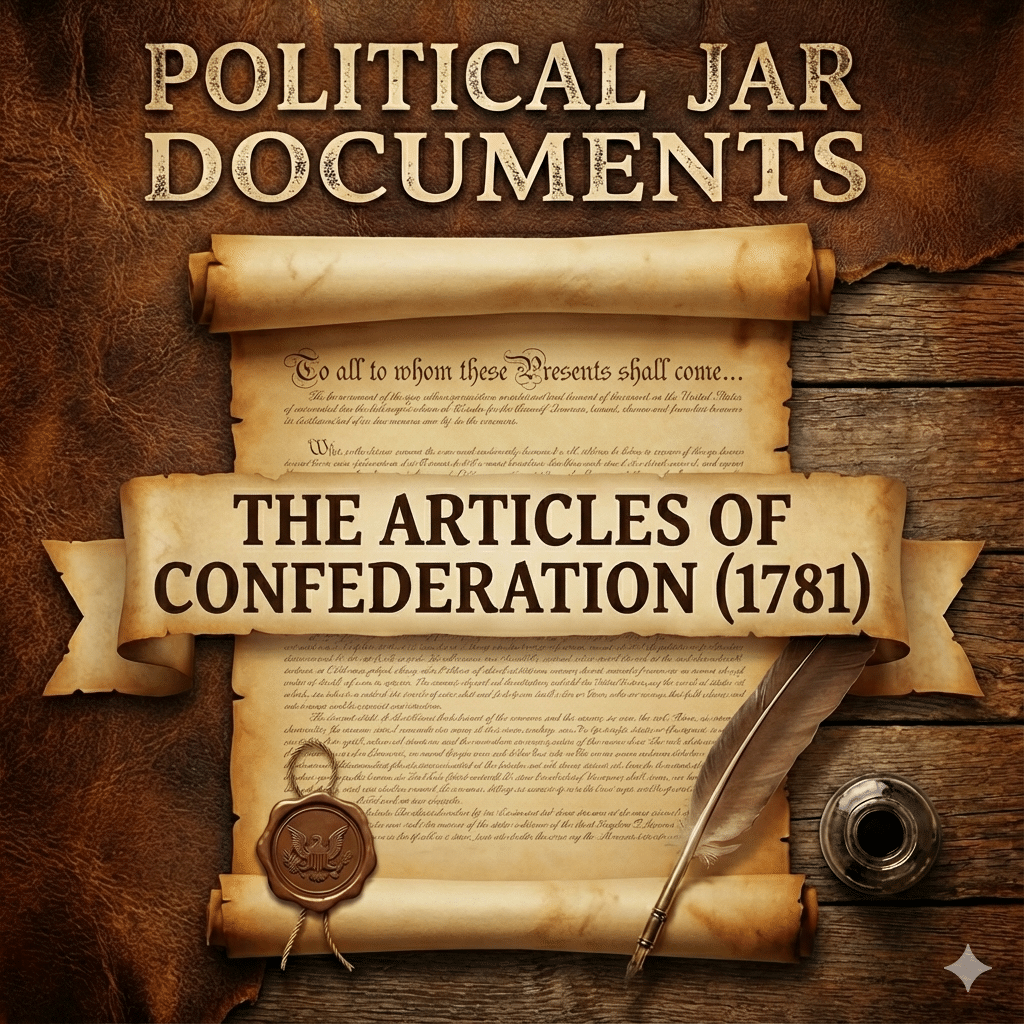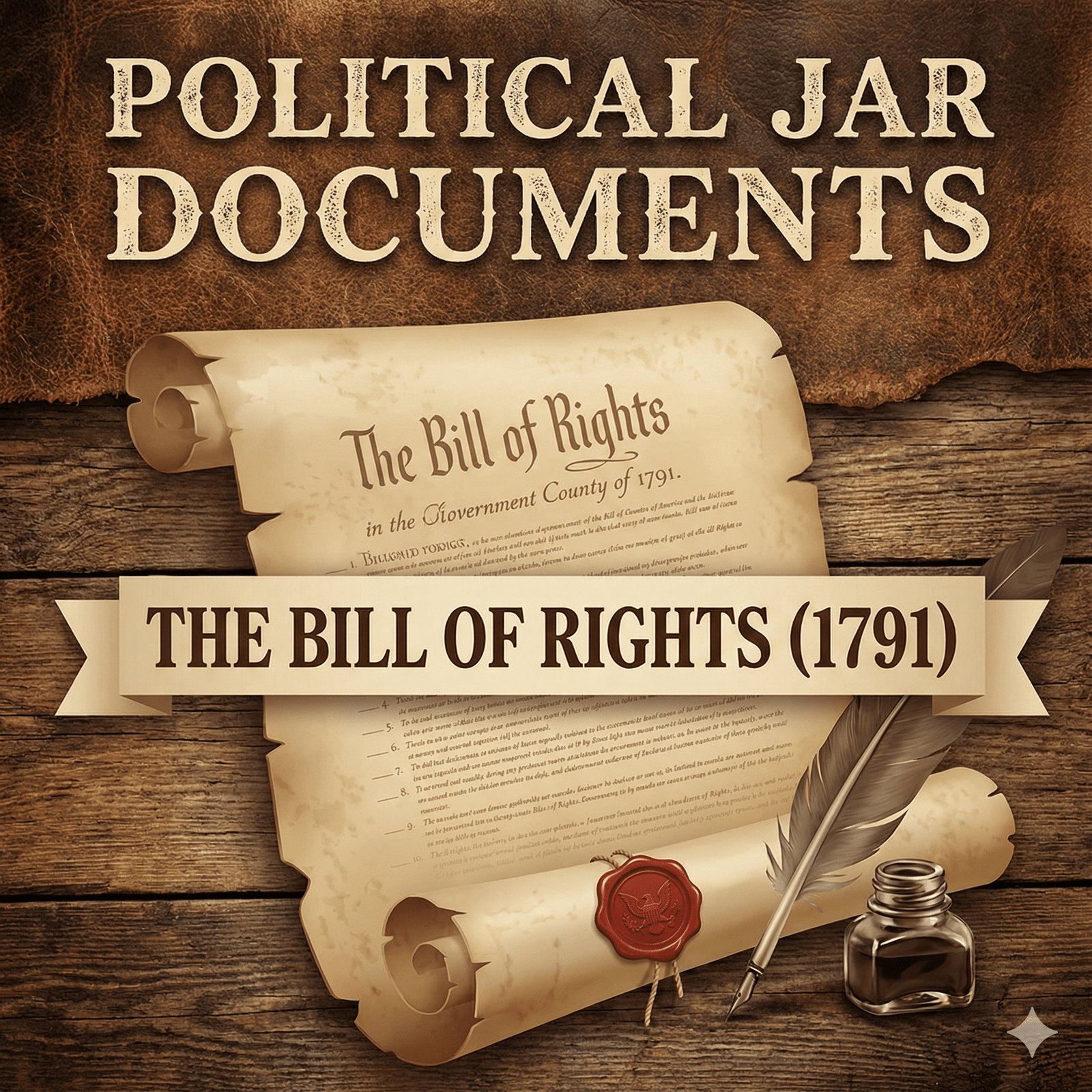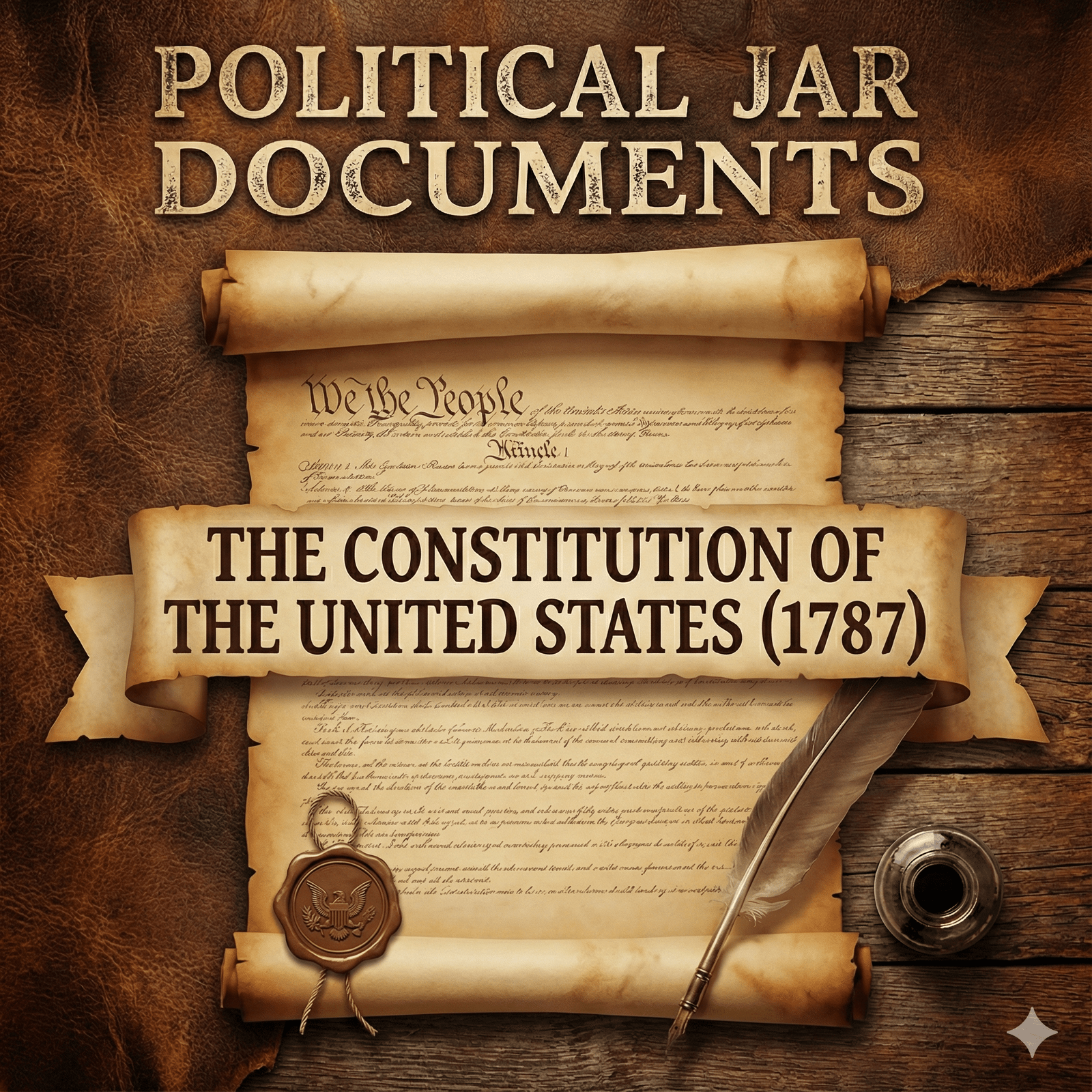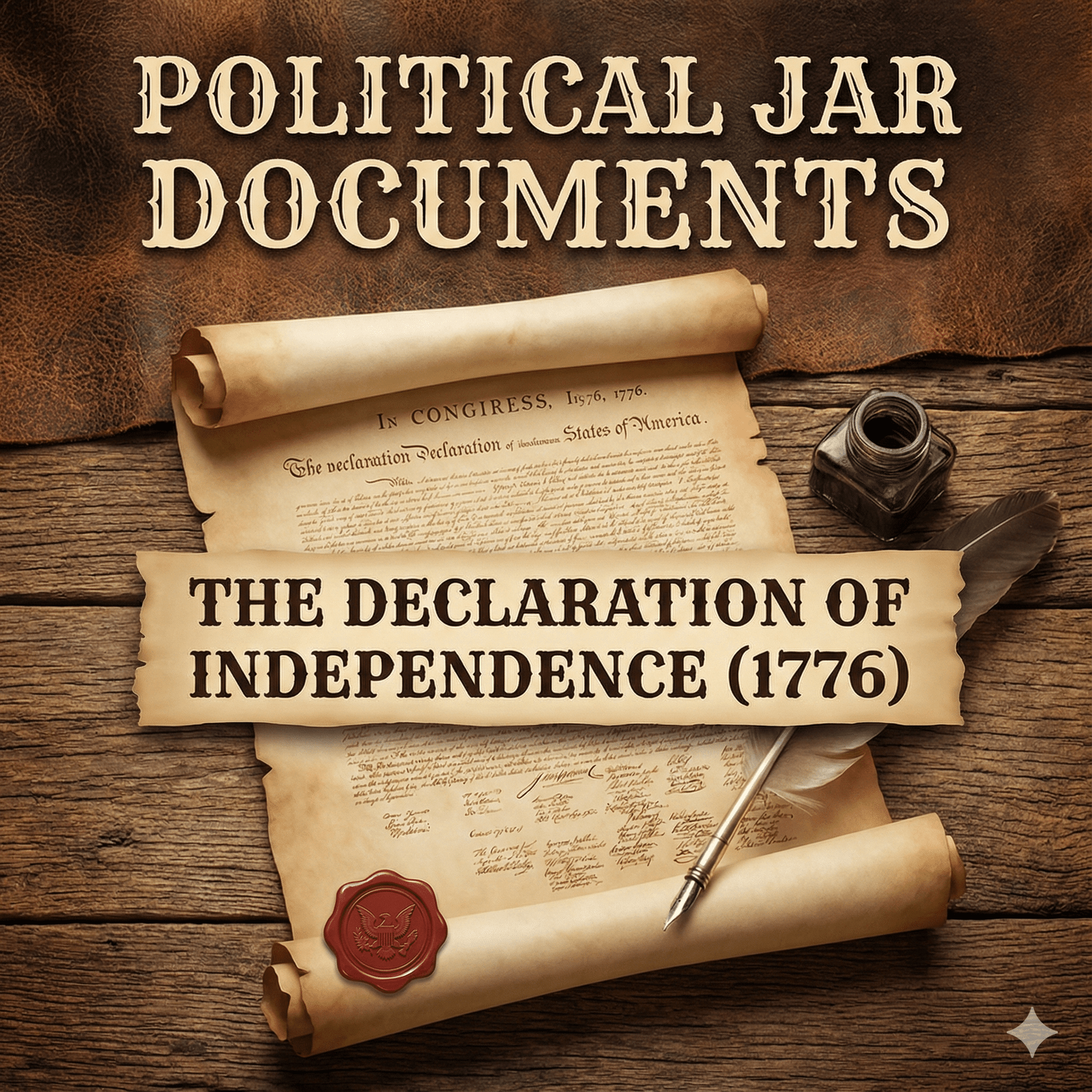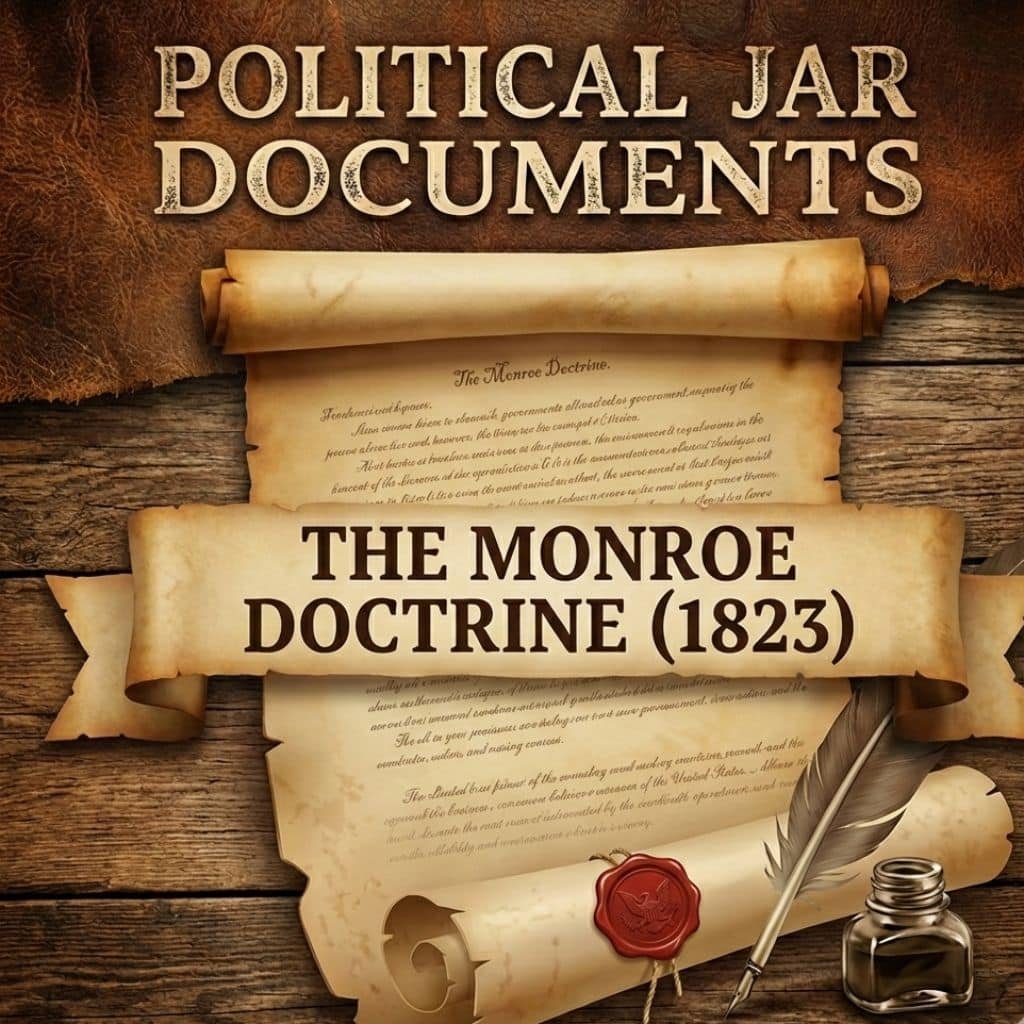
Political Documents: A Collection of Historical and Political Documents
In a world of rapidly changing news cycles and political discourse, the foundation of governance and democracy often gets overlooked. Yet, the historical and political documents that have shaped nations, movements, and political ideologies remain as relevant today as they were when first drafted. At Political Jar, we believe that understanding these foundational texts is key to fostering informed discussions and thoughtful civic engagement.
This section, Political Documents, serves as a central archive of some of the most important political and historical texts ever written. From the United States Constitution to the Declaration of Independence, from The Federalist Papers to landmark Supreme Court rulings, this collection is designed to provide readers with direct access to the documents that have defined political structures and legal precedents.
Why Historical and Political Documents Matter
Political and historical documents are not just relics of the past; they are living texts that continue to influence modern governance, law, and civil rights. Whether you’re a student, a historian, a political enthusiast, or an engaged citizen, having access to these original documents allows you to interpret them without bias or manipulation.
Preserving Democracy Through Knowledge
One of the fundamental aspects of democracy is an informed electorate. Many political discussions today revolve around constitutional rights, the role of government, and historical context—but often, these debates are shaped by secondhand interpretations rather than direct engagement with the original texts. By reading these documents firsthand, citizens can form their own perspectives based on historical accuracy rather than partisan rhetoric.
For example, debates on the Second Amendment, freedom of speech, and states’ rights are often framed by selective interpretations. Having access to the full text of the Constitution, including the Bill of Rights, allows for a more nuanced and accurate understanding of these issues. Similarly, Supreme Court decisions like Brown v. Board of Education and Roe v. Wade provide essential context for ongoing discussions about civil rights and legal precedents.
What You’ll Find in Political Documents
This collection is designed to serve as a comprehensive and user-friendly reference for historical and political documents. Below is an overview of some of the key political documents included in this archive:
Founding Documents & Government Frameworks
- The U.S. Constitution – The foundation of American government, outlining the framework of federal power, checks and balances, and individual rights.
- The Bill of Rights – The first ten amendments to the Constitution, detailing essential liberties such as freedom of speech, religion, and due process.
- The Declaration of Independence – The document that signaled the birth of the United States and its separation from British rule.
Key Political Writings & Essays
- The Federalist Papers – A series of essays by Alexander Hamilton, James Madison, and John Jay, arguing for the ratification of the Constitution.
- Anti-Federalist Papers – Writings from those who opposed the Constitution, offering insights into the concerns over centralized government.
Supreme Court Decisions & Legal Precedents
- Marbury v. Madison (1803) – Established the principle of judicial review, giving courts the power to strike down unconstitutional laws.
- Plessy v. Ferguson (1896) & Brown v. Board of Education (1954) – Landmark cases that shaped civil rights and segregation policies in the U.S.
Speeches & Political Doctrine
- Gettysburg Address (1863) – Abraham Lincoln’s powerful speech redefining the purpose of the Civil War and American democracy.
- Martin Luther King Jr.’s “I Have a Dream” Speech (1963) – A defining moment in the civil rights movement, advocating for racial equality and justice.
- The Monroe Doctrine (1823) – A key statement of U.S. foreign policy, shaping interactions with European powers in the Western Hemisphere.
International Documents & Charters
- The Magna Carta (1215) – A cornerstone of constitutional governance, influencing democratic principles worldwide.
- The Universal Declaration of Human Rights (1948) – A global framework for human rights, adopted by the United Nations.
How to Use the Political Documents Section
Each document in this archive will be presented in its full original text, accompanied by a brief introduction to provide historical and political context. Our goal is not to editorialize but to make these texts easily accessible so that readers can engage with them directly.
For those looking to dive deeper, we will also include supplemental resources such as:
- Summaries and explanations for key passages.
- Historical background on the creation and impact of each document.
- Relevant legal and political analysis where applicable.
Whether you’re researching a historical event, analyzing legal principles, or simply seeking to understand the political landscape more deeply, this section will serve as a valuable resource.
The Power of Primary Sources
In today’s era of political polarization and media bias, having direct access to foundational political documents is more important than ever. By reading these texts firsthand, individuals can develop their own informed opinions and participate in meaningful, fact-based discussions.
At Political Jar, we are committed to making these political documents accessible to all, ensuring that history and governance remain at the forefront of civic engagement. We invite you to explore, analyze, and use these resources as tools for understanding the past, present, and future of politics.
To view how your representative voted visit the Political Jar Political Directory

